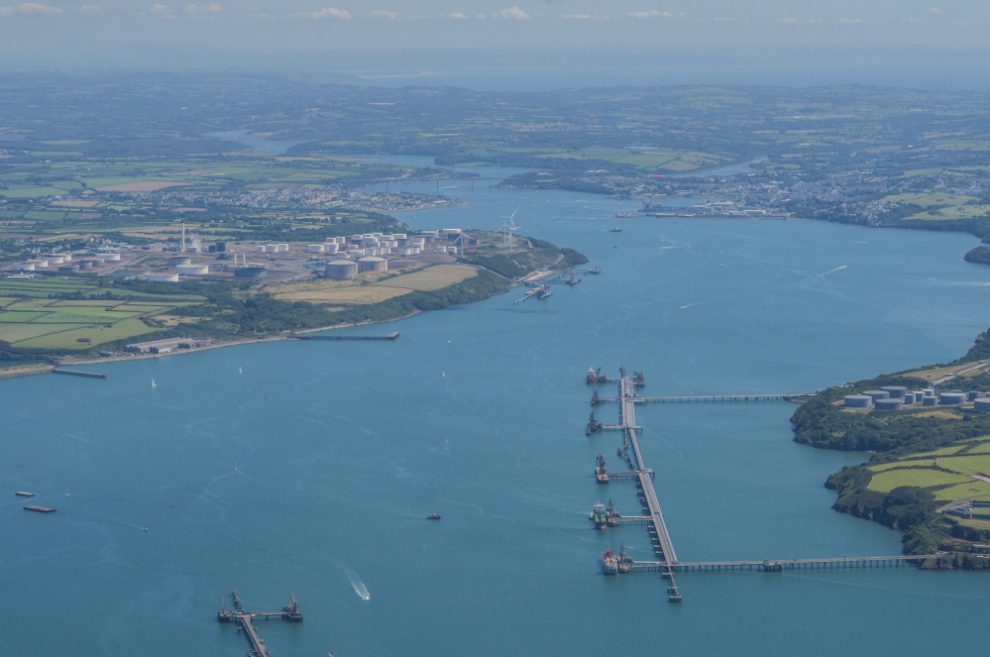THE SOUTH WALES Industrial Cluster (SWIC) has today (Mar 13) officially launched its Cluster Plan report.
SWIC strongly believes that if the policy drivers within its report are urgently implemented by stakeholders, south Wales industry could accelerate Wales’ contribution to limiting global warming and help retain economic prosperity for the region.
The report, which is the culmination of 26 months’ work by around 40 Welsh businesses, academia and public bodies, is entitled “South Wales Industry – A Plan for Clean Growth”.
The report outlines 30 policy drivers that SWIC believes are vital to decarbonise industry. Key priority areas include:
· Ensuring energy and carbon policies, plus support mechanisms, are internationally competitive.
Currently industry and businesses in the UK pay more for energy, and in particular for electricity, than other European countries, adding to economic pressure for companies to either stay using traditional energy and not switch to electric methods, or move to countries with more affordable and competitive energy prices.
· The provision of business model support for electrification and Carbon Capture and Utilisation (CCU).
This will deliver efficient industries and support the development of the circular economy. Creating a circular economy (where waste products are used to power other industries, and its end-waste product is also reused in an industrial setting) is key to the future decarbonisation of Wales.
· The urgent development of the south Wales electricity grid and hydrogen infrastructure.
Without grid connectivity and a hydrogen network, industry will not have the infrastructure needed to implement their optimal decarbonisation pathway and maximise the potential of Celtic Sea floating wind.
· SWIC and CO2 shipping needs to be included in the UK Government’s cluster sequencing program to accelerate CCUS infrastructure for the region and the south of the UK.
Engineering work being carried out by the Deployment Project, which is also funded by UK Government Research and Innovation, demonstrates that SWIC has the potential to lead the development of the UK’s CO2 shipping capability.
· Collaboration is crucial for clustering.
Collaboration is key for the progression of skills, supply chain opportunities, research and innovation benefits and development of Clean Growth Hubs.
Dr Chris Williams, head of industrial decarbonisation at Industry Wales – who has been leading SWIC since its inception in 2019 – said of the report: “This report sets out a step-by-step roadmap for the decarbonisation south Wales industry and the infrastructure required to achieve net zero. It could potentially unlock an unprecedented £30billion investment in south Wales, creating new industries, producing tens of thousands of jobs and securing thousands more.
“Our industries need a solid plan, backed by supportive policies, to enable them to carry out their own individual decarbonisation journeys, which in turn will support our south Wales communities and future generations.”
Dr Williams added: “We have unique opportunities in south Wales with the Port of Milford Haven – which supplies 20% of the UK’s energy supply – to be at the forefront of decarbonisation activities in the UK. To do nothing now would mean we are always playing catch up and that is simply not an option.
“This report is key for the future of Welsh industry. To get to this point is hugely important and will forever be marked in history as the start of a new economic revolution for south Wales Industry.”
Tony Parton, Managing Director of CR Plus, that has led the Cluster Plan project said: “The overriding message of this report is that we have to do something now – the current state of play isn’t sufficient to ensure that Welsh industry is competitive on a global scale.
“This is the culmination of more than two years of work where SWIC examined in detail what is needed to help our industries decarbonise and safeguard hundreds of jobs for the region. Now it is imperative that we work collaboratively with UK and Welsh Governments to deliver these policies to unlock necessary investments to reach net zero by 2050 or sooner.”
David TC Davies MP, Secretary of State for Wales, said: “UK Government is pleased to fund projects like the South Wales Industrial Cluster that bring together industry to develop pathways to decarbonisation. We want to make sure the economy of Wales is fit for the future, providing skilled jobs, and driving prosperity alongside achieving our net zero targets. We look forward to working with partners and stakeholders to help us achieve these goals.”
Vaughan Gething, Minister for Economy for Welsh Government, said: “Today marks an important opportunity to recognise the work and commend all those involved in delivery of the South Wales Industrial Cluster Plan, and I look forward to learning more about their findings.”
The Cluster was awarded £1.5million by the UK Government’s UK Research and Innovation ‘Industrial Decarbonisation Challenge’ fund to support the £2.2M programme. The Challenge aims to boost the competitiveness of key industrial regions and drive inward investment, creating and protecting jobs for a low-carbon global economy with growing low-carbon export markets.
Collaborators in the SWIC Cluster Plan project are CR Plus Limited, Associated British Ports, Capital Law, Carbon 8 Systems, Celsa Steel, Confederation of Paper Industries, Connect and Convey Ltd, Costain, Dragon LNG, Energy Systems Catapult, ERM, Front Door Communications, Industry Wales, Liberty Steel, Port of Milford Haven, National Grid Electricity Transmission, Neath Port Talbot Council, Offshore Renewable Energy Catapult, Pembrokeshire County Council, Progressive Energy, ROCKWOOL Ltd, RWE, Siemens, Tata Steel, Tarmac, University of South Wales, Vale Europe, Valero Energy, Western Bio-Energy, Western Power Distribution and Wales & West Utilities.


















